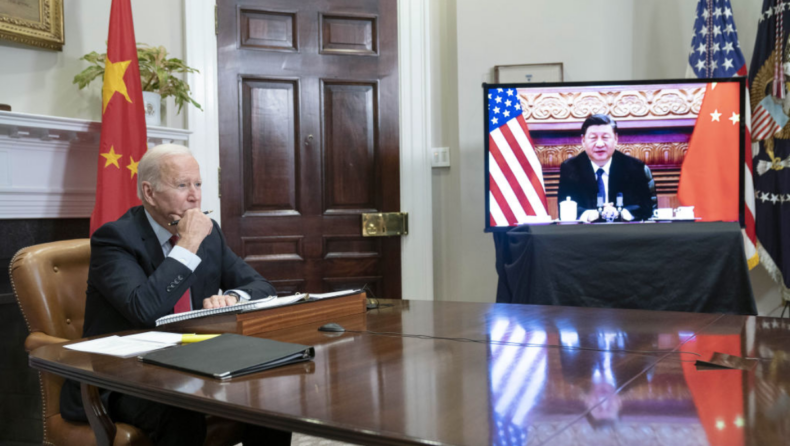Tension over Taiwan: Presidents Xi Jinping and Joe Biden will address the nation on Thursday, according to an American official. As tensions between the United States and China over Beijing’s claims to Taiwan have risen, this will be their first conversation in four months.
The scheduled discussions between the two leaders have been planned for weeks and will be the sixth in a series of routine check-ins. The possibility of a trip to Taiwan by House Speaker Nancy Pelosi, the top Democrat in Congress and the second in line to the presidency, has further strained the already difficult relationship.
If Ms. Pelosi travels to the island country of Taiwan, which it recognises as being a part of its territory, Beijing has vowed to take “forceful actions.”
However, Mr. Biden this week informed reporters that U.S. military authorities believed the speaker’s journey to the island at this time was “not a wise idea.” Plans for Ms. Pelosi to visit Taiwan have not been made official. Following last week’s Financial Times report that Pelosi planned to visit Taiwan in August, Mr. Biden made his comments. When she learned she had COVID-19, she had to postpone what she had originally planned to accomplish in April.
The speaker has decided to withhold her plans to visit Taiwan due to security concerns. She said that the military authorities’ “concern that the Chinese may fire down our plane, or something similar,” was what drove Mr. Biden’s statement. Since Republican Newt Gingrich visited Taiwan in 1997 while he was the House speaker, she would be the highest-ranking elected official from the United States to have done so.
According to Ms. Pelosi, aiding Taiwan was essential on the part of the US. No one among us has ever backed Taiwan’s independence. That decision will be made by Taiwan. Representatives from the administration have privately advised Ms. Pelosi that going to Taiwan may make a delicate situation worse.
Chinese authorities are not apologizing and are being very explicit that Ms. Pelosi’s trip would be viewed as a change in U.S. policy and a provocative act.
“If the United States persists in pursuing its own way,” said Wang Wenbin, a spokeswoman for the Chinese Foreign Ministry, “China will take bold efforts to clearly react and oppose it, and we will do what we say.”
Concern for Taiwan following the Russian invasion of Ukraine
The United States has traditionally prioritized the “One China” policy, which recognizes Beijing as the government of China but allows for informal ties and defense ties with Taipei. There are rumors that China has been escalating its military provocations against Taiwan in an effort to intimidate the island into complying with Beijing’s demands to join the communist mainland.
The North Korean nuclear program, differences between Beijing and Washington regarding Russia’s conflict in Ukraine, efforts by the Biden administration to revive the Iran nuclear deal, and the status of the American administration’s review of the tough tariffs imposed on China by the Trump administration may all come up in the course of Mr. Biden’s and Mr. Xi’s discussions.
China has often threatened to use force to establish its claim to Taiwan since Vice President Biden took office 18 months ago, and it has also flown hundreds of aircraft into Taiwanese airspace. The law demands that the U.S. guarantee the island democracy’s capacity for self-defense and treat any threats seriously.
The conversation occurs as Mr. Biden’s national security and economic advisors complete their evaluation of American tariff policy and prepare to make recommendations to the president.
Chinese exports worth billions of dollars were subject to a 25% tax under President Donald Trump. The sanctions were implemented in order to lessen the economic deficit with China and force that country to adopt more morally sound corporate practices.












